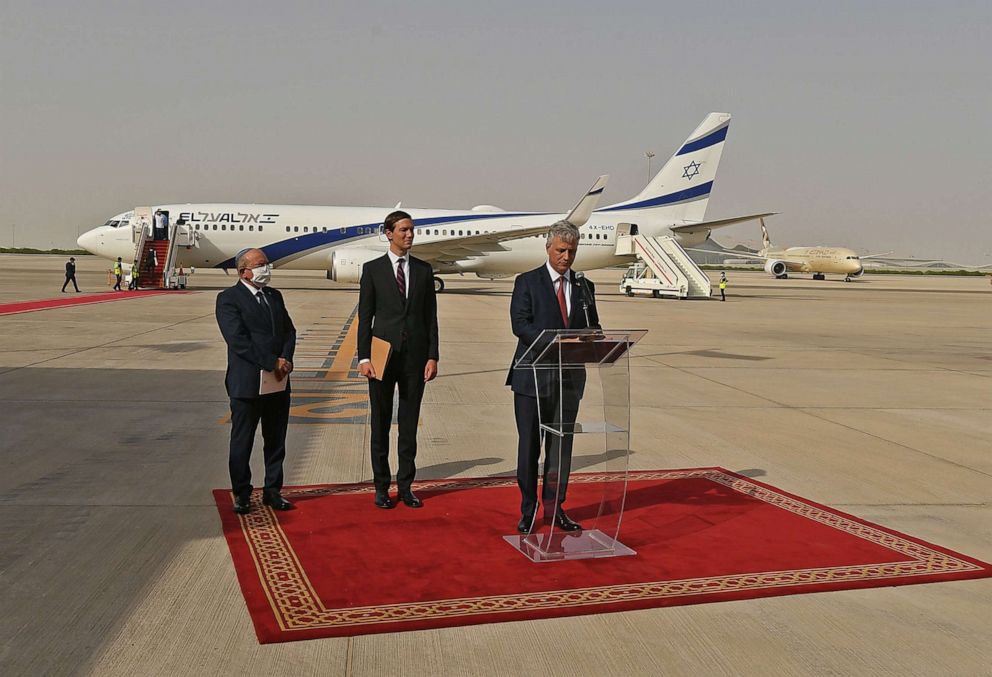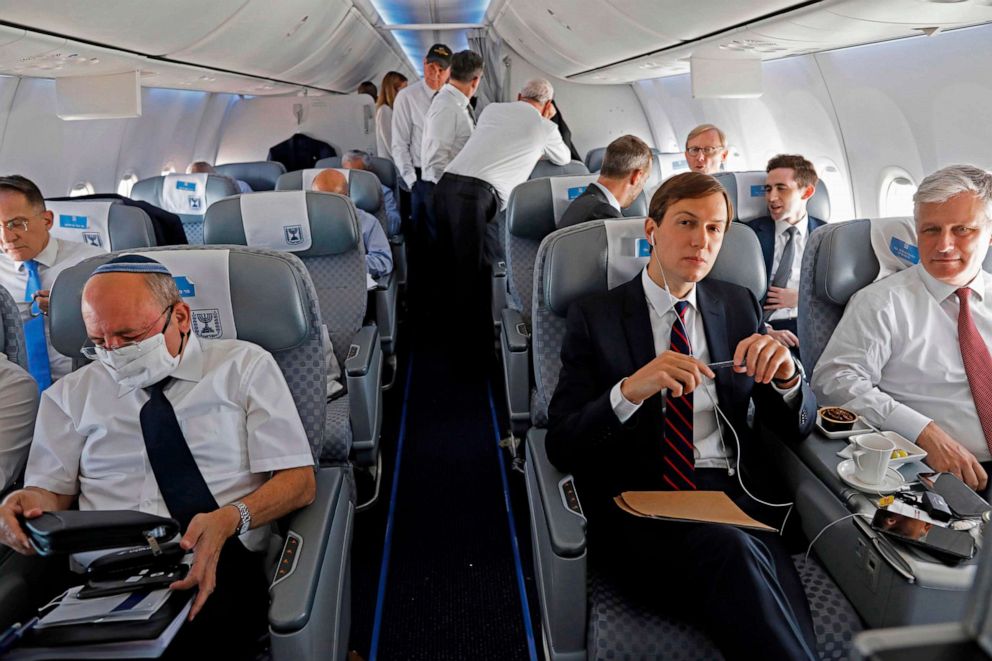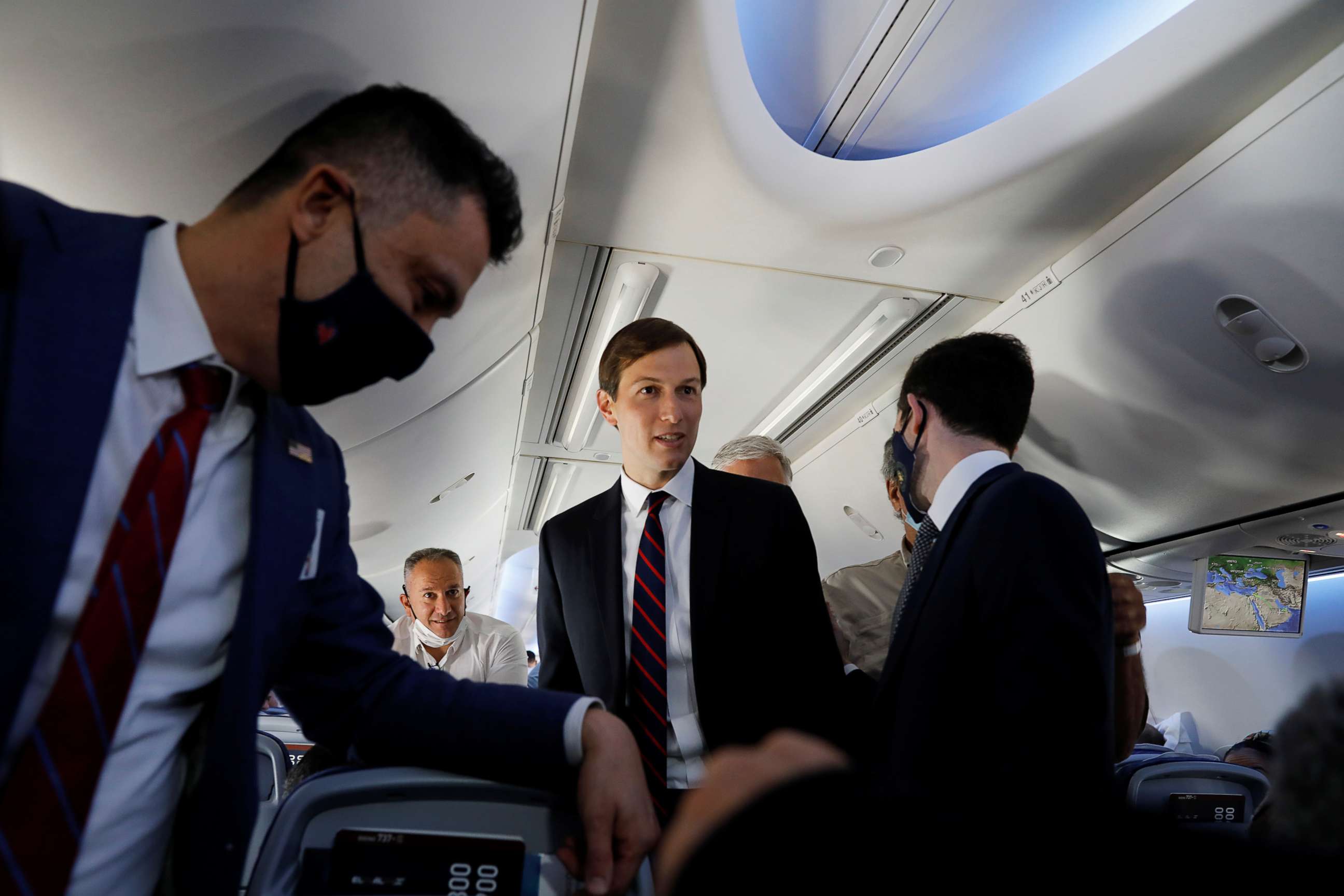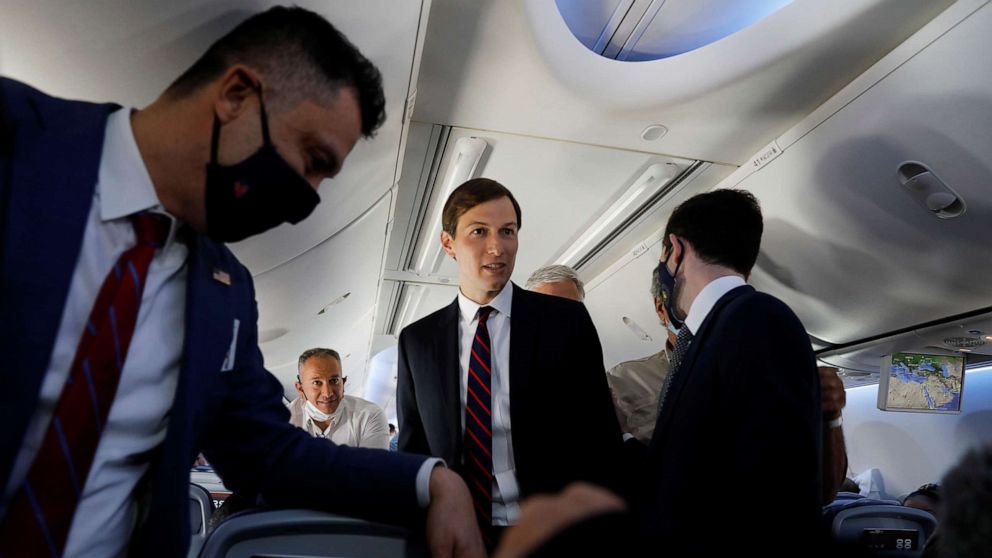US delegation leads historic flight from Israel to UAE to discuss new ties
A U.S. delegation led by President Donald Trump's son-in-law and senior adviser Jared Kushner and National Security Adviser Robert O'Brien joined Israeli officials for the first commercial flight between Israel and the United Arab Emirates on Monday.
The historic flight aboard Israel's El Al airline celebrated the U.S.-brokered agreement between the two countries to normalize relations, solidifying years of secret relations amid a shared threat from Iran, although some hurdles remain that could derail the deal.
With the UAE now the third Arab state to recognize Israel, the Trump administration has been pushing other countries in the region to follow suit ahead of the election. That effort seems stalled at the moment after outcry by Palestinian leadership, denouncing the Emirates' recognition of Israel as a betrayal that leaves a marginalized people even further from achieving their own state.

But Kushner on Monday dismissed their opposition and urged others to "join us in celebrating peace and help us expand it throughout the region and the entire world."
"The very few who have been critical of this peace agreement are the ones with a long track record of failure and trapping their own people in misery and poverty. They exploit division to maintain power, but their rhetoric has grown tired, and the region is breaking free from their grip," he added shortly after arriving in Abu Dhabi, the capital of the UAE.
The high-level American delegation flew with Israeli officials from Israel's national security council and ministries of foreign affairs, tourism, health, treasury, and cyber security. Delegations from all three countries will convene for talks to bring the deal, announced earlier in August, into effect.
Since that announcement, other symbolic steps have been taken, including connecting telephone calls and the UAE officially repealing a decree to boycott Israel. Unlike Jordan and Egypt, the two Arab countries that already have relations with Israel, the UAE has never fought Israel, and there's hope for warmer relations, particularly strong business cooperation.
But there are still some issues that must be worked out, especially on Israeli settlements and the F-35 fighter jet.

The UAE has heralded the deal for forcing Israel to halt plans to annex parts of the West Bank, which Palestinians claim for their future state. But Israeli Prime Minister Benjamin Netanyahu has talked about that as a temporary pause, and it's unclear what would happen to relations if he moved forward with the controversial move at a later date. Secretary of State Mike Pompeo seemed to back up Netanyahu, telling the Jerusalem Post the Israeli commitment was "for a period of time," but more meetings would be needed to get "greater clarity."
Emirati officials have also said the deal involves the U.S. selling UAE its F-35 jets, the most advanced warplane in the U.S. arsenal. But Netanyahu and other Israeli officials have said they will not agree to the sale, which would undermine Israel's military advantage in the region.
U.S. officials have not confirmed the potential sale, but dismissed concern about it as an impediment. A senior State Department official said last week the U.S. is committed to "carefully... strengthening UAE's defense capabilities" while "honor[ing] our commitment to Israel's QME" -- qualitative military edge -- a requirement of U.S. law.
Pompeo went on a five-country tour of the region last week to lobby other Arab countries to follow the Emiratis' lead, stopping in Oman, Bahrain, and Sudan. which have been considered leading contenders to join UAE. But so far, none have yet announced any changes.
Instead, Sudan's Prime Minister Abdalla Hamdok told Pompeo he did not have the authority to normalize relations with Israel, according to a spokesperson, because he leads a transitional government as the country emerges from decades of dictator Omar al Bashir's brutal rule.

Bahrain's king also rebuffed Pompeo, stressing "the importance of ending the Palestinian-Israeli conflict in accordance with the two-state solution that achieves a just and comprehensive peace and leads to the establishment of an independent and sovereign Palestinian state with East Jerusalem as its capital" first, official state media reported Wednesday.
Palestinian Prime Minister Mohammad Shtayyeh denounced the historic flight on Monday as an abandonment of that principle.
"It is very painful to see today the landing of an Israeli plane in the United Arab Emirates in a clear violation of the Arab stance on the Arab-Israeli conflict," he said.
While other Arab countries have not taken that step yet, Saudi Arabia did provide permission for the flight, and it's unclear whether any are willing to take a strong stand for the Palestinians.
Chipping away at that support and increasing the pressure on Palestinian leadership seems to be Kushner's plan, which has been wholly rejected by Shtayyeh and others and stalled since its full release in January.
"When they are ready, the whole region is very excited to help lift them up and move them forward but they can't be stuck in the past, they have to come to the table," he said from the tarmac in Abu Dhabi Monday.




